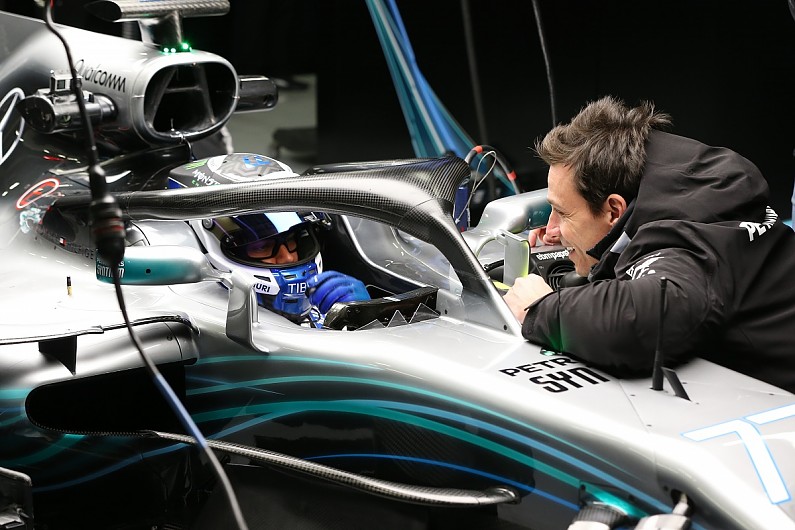Get unlimited access
You have only 5 articles remaining to view this month.
Mercedes boss Toto Wolff has changed his mind about Formula 1’s halo and says he would not have forgiven himself if vetoing it had led to a “potentially catastrophic outcome”.
The controversial driver protection device became mandatory in F1 and Formula 2 this year, and played a significant role in major accidents in both championships.
Wolff said at the start of the season that he was not impressed by the halo, which was forced through by the FIA on safety grounds despite opposition from teams, and joked he would take it off with a chainsaw if he could.
This week, an FIA report revealed that the halo prevented Charles Leclerc from being struck on the visor by Fernando Alonso’s front wing endplate in their first-corner crash at the Belgian Grand Prix.
“Yes, I have changed my mind,” said Wolff when asked by Autosport about his previous comments at the FIA’s end-of-season prizegiving ceremony in St Petersburg.
“I still don’t like the aesthetics of it, and I hope we can find a solution in the future that looks good.
“[But] I really like Charles, he’s a young, upcoming racer that deserves to be in Formula 1 and I would not have forgiven myself if we would have voted against the halo and it would have failed, and we’d have had a severe incident with a potentially catastrophic outcome.
“So, even though it’s aesthetically not what I like it’s a super initiative that has shown its merit.
“I’m happy that Jean [Todt, FIA president] pushed through and they didn’t give me a chainsaw at the beginning of the season.”
The halo will remain part of F1 for the foreseeable future after its successful first season as a mandated safety device.
But motorsport’s ongoing safety push means F1’s time as an open-cockpit category may be numbered.
“We need to get the right balance between aesthetics and safety,” Wolff said when asked if he preferred F1 to be open-cockpit.
“I personally like the closed canopies like fighter jets.
“Between the teams and the FIA and the commercial rights holder, we just need to work proactively and in a collaborative manner to find solutions that look great and save lives.”
